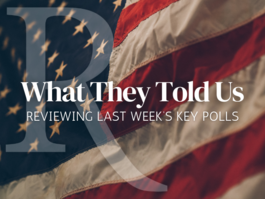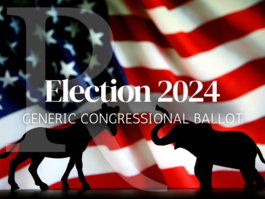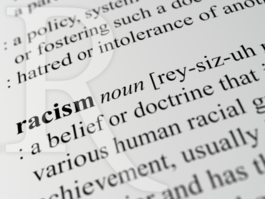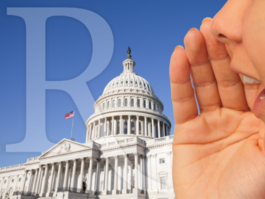What They Told Us: Reviewing Last Week’s Key Polls - Week Ending May 25, 2024
In surveys last week, this is what America told Rasmussen Reports...

In surveys last week, this is what America told Rasmussen Reports...

Four years after the COVID-19 pandemic gripped the world, many Americans believe they know someone who died from the vaccine that promised to stop the virus.

If you want to explain to a puzzled, left-leaning writer like The Atlantic's Annie Lowrey why most voters this year rate the economy during former President Donald Trump's term more favorably than the economy during President Joe Biden's, you might start with a pair of simple charts.

As America prepares for the holiday honoring those who died while serving in the U.S. military, veterans have a higher opinion of Memorial Day.

On the question of which presidential candidate would do more to ensure America’s safety, voters have a clear preference for former President Donald Trump.

Less than six months before Election Day, Republicans have a five-point lead in their battle to maintain their narrow House majority..

Have you heard about the "bee-pocalypse?" My new video explains.

Despite high interest rates, homeowners are now more confident in the resale value of their homes than they’ve been in nearly five years.

As the so-called “hush money” trial of former President Donald Trump nears its conclusion, most voters expect the defendant to be found guilty.

Donald Trump's first election redrew the map of American politics; suddenly Pennsylvania and Michigan were in the Republican column for the first time since the 1980s.
But they didn't stay there: The Rust Belt states that made Trump president in 2016 sent Joe Biden to the White House in 2020.

Thirty-two percent (32%) of Likely U.S. Voters think the country is heading in the right direction, according to a new Rasmussen Reports national telephone and online survey for the week ending May 16, 2024.

Given a choice between granting amnesty to illegal immigrants and deporting all of them, Americans voters favor deportation by a double-digit margin.

In surveys last week, this is what America told Rasmussen Reports...

Most Americans think racism is still a serious problem in the country, and more than a quarter of them worry that they could be accused of racism.

Will the world be better off with fewer people? For years that has been a hypothetical question posed to suggest an affirmative answer. Fewer people, it was claimed, would mean less depredation of natural resources, less urban overcrowding, more room for other species to stretch their (actual or metaphorical) legs. Mankind was a parasite, a blight, and overpopulation a disease. Fewer people would mean a better Earth.

Only one-in-five voters think members of Congress listen to their constituents, and a majority say a random collection of people would do a better job.

Two measures aimed at protecting the integrity of elections have majority support from American voters.

— State supreme court elections are often ignored by the public and the media, but they can have a dramatic impact on public policy, especially in the post-Roe v. Wade era, when abortion policy is being sent back to the states.
— Numerically, 2024 is a very big year for such elections: They will be held in 33 states. And in several of those states, ideological control of the court could shift depending on the results.
— This year, Michigan, Ohio, Montana, North Carolina, Kentucky, Arizona, and Florida will be home to some of the most consequential supreme court elections.

Just weeks before high school seniors get their diplomas, most Americans don’t think new graduates are ready for the real world.

After the Constitutional Convention in 1787, when Benjamin Franklin was asked what kind of government the convention had created, he said, “A republic, if you can keep it.” Nearly half of voters don’t think we’ve kept it.